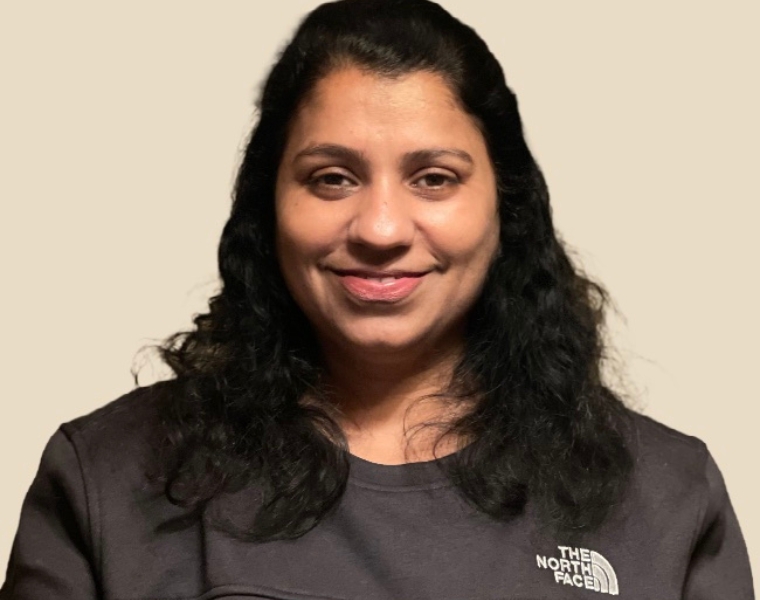Now in her second year as a Master of Social Work student at the Jack, Joseph and Morton Mandel School of Applied Social Sciences, Anju Kotwani is making her name known in her field. Most recently, she was chosen for a selective first author oral presentation slot at the Society for Social Work and Research’s annual conference.
She will discuss her research on social cognition, neurocognition and functional outcomes in those with schizophrenia Thursday, Jan. 12.
As she looks ahead to this accomplishment, Kotwani shared background about her research and her decision to come to Case Western Reserve University to study social work.
Answers have been lightly edited.
1. What interested you in pursuing a degree in social work?
Social work is my second career. Prior to entering social work, I worked in human resources in the corporate sector. During the pandemic, as many people started experiencing psychological distress, I realized I wanted to make a meaningful difference in the lives of adults living with mental illness.
2. Can you briefly describe your research?
I conducted a secondary analysis on the pre-treatment data collected during a multi-site randomized controlled trial conducted by my mentor, Dr. [Jessica] Wojtalik, assistant professor at the Mandel School, and her colleagues from University of Pittsburgh and Harvard Medical School. The participants in the parent trial included individuals with a diagnosis of early course schizophrenia, schizoaffective disorder, or schizophreniform disorder.
My analysis examined the relationship between neurocognition, social cognition and functional outcomes. The findings of my study suggest that the impact of neurocognitive impairment on poor functional outcomes occurs, in part, through impairment in social cognition. These findings highlight the need for comprehensive psychosocial interventions that focus on the social cognition domain along with neurocognition during the early phase of schizophrenia.
3. What intrigued you about this research topic?
My field placement for the first year of the MSW program was at Magnolia Clubhouse, where I got an opportunity to work with individuals living with serious mental illnesses (SMI). A majority of the members in the clubhouse had schizophrenia as a primary diagnosis and observing them closely influenced my interest in psychosocial treatments available for people with schizophrenia.
What was concerning to me was that many individuals were able to grasp complex skills and perform seemingly difficult tasks and yet were not able to understand social cues and perceive emotions of others (social cognition). This encouraged me to dive deeper into the social cognition domain and how it affects the functional outcomes such as employment, independent living and social functioning in the early phase of schizophrenia.
4. What does it mean to you to be selected to give an oral presentation at the SSWR meeting?
Society for Social Work and Research (SSWR) is a scientific community that advances contemporary social work research. It is my honor and privilege to present at the SSWR annual conference where researchers from different parts of the U.S. and the world come together to present their novel research findings in different areas of social work, including interventions for people living with SMI. This conference provides an opportunity to learn from the work of the esteemed faculty from renowned schools of social work and research staff from public and private organizations.
5. What do you hope to do upon completion of your master’s program?
I want to pursue doctoral studies to be able to continue my research work focused on the SMI population, particularly individuals living with schizophrenia.
6. Why did you choose to come to CWRU and the Mandel School?
CWRU is one of the best universities in the nation with a strong research focus. The Jack, Joseph and Morton Mandel School of Applied Social Sciences provides an intellectual environment that integrates knowledge with practice. The faculty at [Mandel School] are extremely helpful and dedicated to preparing students to be change agents. I was particularly motivated by the idea of solving social problems through research and the prospects of training opportunities available through the nine research centers that are an integral part of the Mandel School.

